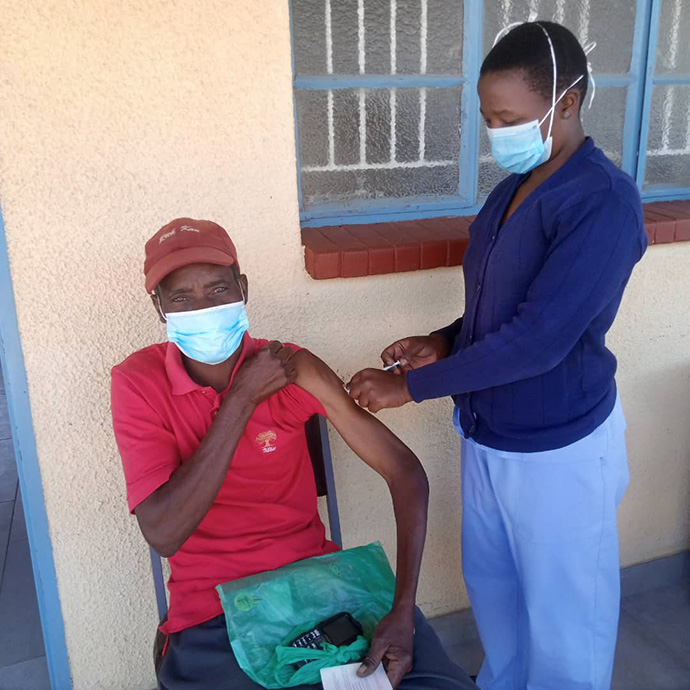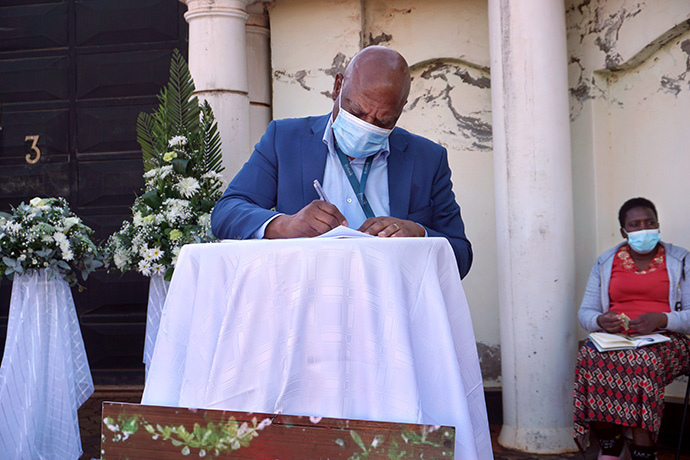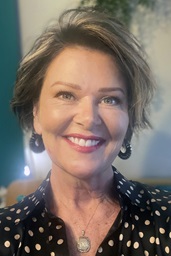Key points:
• With churches in Zimbabwe forced to close doors at various times during the pandemic, finances have suffered, especially affecting clergy support and church activities.
• School lockdowns remove protective sanctuary for children, leaving them exposed to sexual exploitation, drug abuse and early marriages, education secretary says.
• Grieving families struggle to find closure amid lockdowns and restrictions on funerals and other gatherings.
COVID-19 has taken a huge toll in countries worldwide, and Zimbabwe is no exception.
United Methodist families, health care workers and congregations are feeling the strains of the pandemic. Johns Hopkins University reports 127,938 confirmed cases and 4,567 deaths in the southern Africa country.
School lockdowns have left children vulnerable.
The pandemic has wreaked havoc on schools, said the Rev. Munyaradzi Timire, Zimbabwe East Conference education secretary. Learning gaps and failing grades often lead to children dropping out of school and family conflict.
“Closure of schools during lockdown took away the protective sanctuary for children offered by schools, leaving them exposed to sexual exploitation, drug abuse and early marriages,” he said.
In a country with many children already orphaned by AIDS, the pandemic poses new threats to vulnerable families.
Dr. Emmanuel Ufonna Mefor, district medical superintendent for United Methodist Mutambara Mission Hospital, said, “COVID-19 is indiscriminately cutting across everyone — the poor, the rich, the highly decorated, the ordinary, the clergy and the expecting mothers.”
“Health workers are stressed and suffering from fatigue,” Mefor said.

With churches forced to close doors temporarily, finances suffer, especially affecting clergy support and church activities.
“Since time immemorial,” said the Rev. Oscar Nyasha Mukahanana, Harare East District superintendent, “the church has rooted its worship services to physical gatherings in an environment that provides close intimacy with God. Choirs and praise and worship teams, which draw people's emotions close to the Creator, are no more.
“The closure of church doors caused churches to suffer financially,” he added. “This negatively affected the welfare of most pastors and church activities. Most of our members give when they are present in worship services, revivals and conventions. Their absence also means an absence of offerings and tithes.”
Beginning Oct. 15, only fully vaccinated congregants can attend in-person worship. About 13% of the population is fully vaccinated.
Virtual worship has proven particularly difficult for some churches.
“Failure to move with technology, lack of resources, poor network connectivity and lack of compatible gadgets or phones for WhatsApp and Zoom are some of the challenges, especially in most remote, rural areas,” Mukahanana said.
In an already tenuous economy, the pandemic also has been tough for the self-employed.
“While lockdowns are extremely necessary to curb the spread of the virus,” said Simon Mafunda, Zimbabwe East Conference lay leader, “they have a negative side on the general performance of the economy, which has a direct bearing on the livelihood of the people.
“Most of our lay members are self-employed and depend on daily small incomes from common sectors like retail and agriculture that are not performing well,” said Mafunda. “The drying up of income streams is also reflected in the offering basket, as fewer and fewer people are able to make cash offerings and other forms of giving at their churches.”
As a result, many churches cannot pay their pastors.
“We came up with a program, where we encourage all members to donate a dollar per month toward rural pastors’ COVID-19 allowances,” Mafunda said.
Mutsa Mujaji chairs the Zimbabwe East Conference Council on Finance and Administration. “Our cash inflows are linked to COVID-19-induced lockdowns,” he said. “When physical or in-person church worship services are suspended, income falls by up to 50%.”
With businesses operating at reduced capacity and for shorter hours, disposable income is curtailed.
“Unfortunately,” Mujaji said, “most people are bringing local currency because that is what they earn, but it is susceptible to inflation. Most products, goods and services are priced in United States dollars. When we liquidate the little USD we receive, we use the official conversion rate, which is far less than the black-market rate that traders use when pricing goods and services. It is difficult to carry out reliable cash-flow projections.
“In order to survive and ensure ministry moves forward, it is imperative to cut expenditures to the bone and preauthorize all expenses.”
Expressing appreciation for the pay-a-dollar initiative, he said each rural pastor received $100 in December 2020 and $50 in April 2021, with another disbursement expected in September.

COVID-19 deaths also are tearing apart families who are often unable to find closure.
“The closure is not dignified and very painful,” said the Rev. Lancelot Victor Mukundu, Zimbabwe West Conference Board of Ordained Ministries chair. “Funerals used to bring families together.” Now, there are limits on attendance and time at funerals.
Patricia Chizengeya, a member of Waterfalls United Methodist Church in Harare, lost both parents in two weeks due to the pandemic. “The suppression or abbreviation of funeral rituals is a traumatic experience,” she said, “because family members are prevented from paying proper homage to their loved ones, causing feelings of disbelief and indignation in many.
“I am still grieving,” she added. “All I need is closure, which is difficult with regard to COVID-19 deaths.” Families cannot visit COVID-19 patients in the hospital or view bodies before burial.
“It's sad,” Chizengeya said. “The only consolation is that I believe it’s meant to protect us.”
Batsi Simango oversees strategy and corporate affairs for the Nyaradzo Life Assurance Company. “The end-of-life solutions industry, in general, is currently facing various capacity constraints due to increased mortality rates as a result of the pandemic,” he said. The number of funerals the agency handles has more than doubled.
“The COVID-19 pandemic,” Simango said, “moved us to adopt quick-win interventions. We increased all resources — human, personal protection equipment and vehicles and led from the front on vaccination.” CEO Phillip Mataranyika, a United Methodist, was the first to be vaccinated.
Dr. Larry Tanyanyiwa, district medical superintendent for United Methodist Nyadire Mission Hospital, said vaccinations are in progress in all six clinics. By July, the clinics had vaccinated nearly 4,000 people, he said.
Pharaoh Mukototsi from Jaji Village was vaccinated at the church’s Dindi Clinic.
“I have come to be vaccinated to prevent myself against COVID-19,” he said.
Simango said his company is encouraging all citizens to minimize unnecessary movements and gatherings, wear masks, sanitize and get vaccinated.
“We strongly believe that, together, we will improve on interventions that will ensure that we overcome this pandemic.”
Chingwe is a communicator for the Zimbabwe East Conference.
News media contact: Julie Dwyer at [email protected]. To read more United Methodist news, subscribe to the free Daily or Weekly Digests.
Like what you're reading? Support the ministry of UM News! Your support ensures the latest denominational news, dynamic stories and informative articles will continue to connect our global community. Make a tax-deductible donation at ResourceUMC.org/GiveUMCom.




